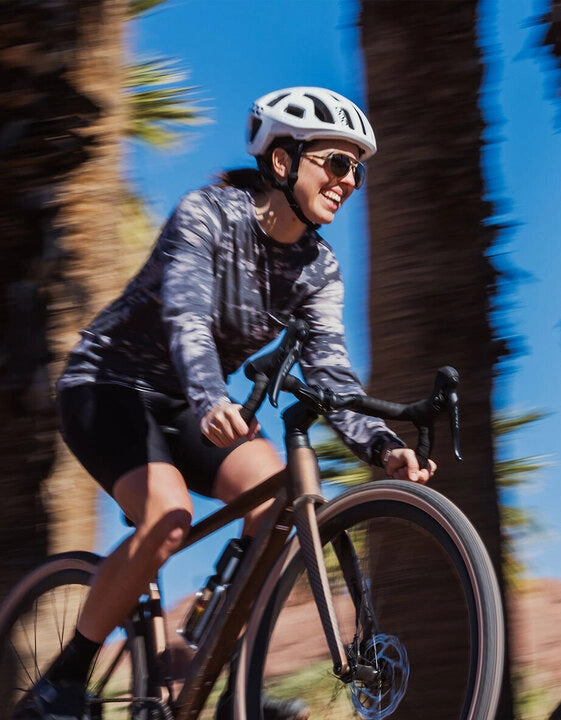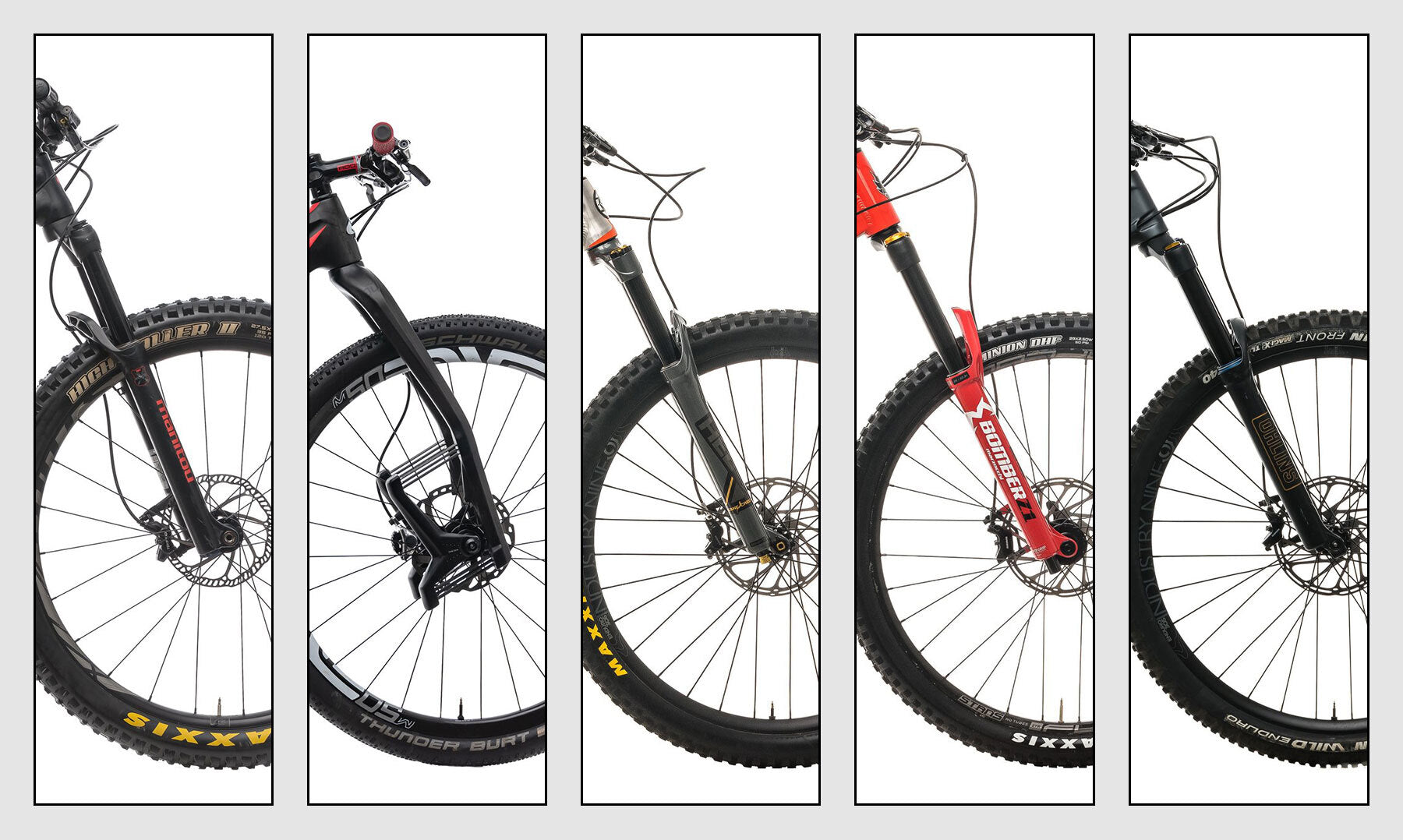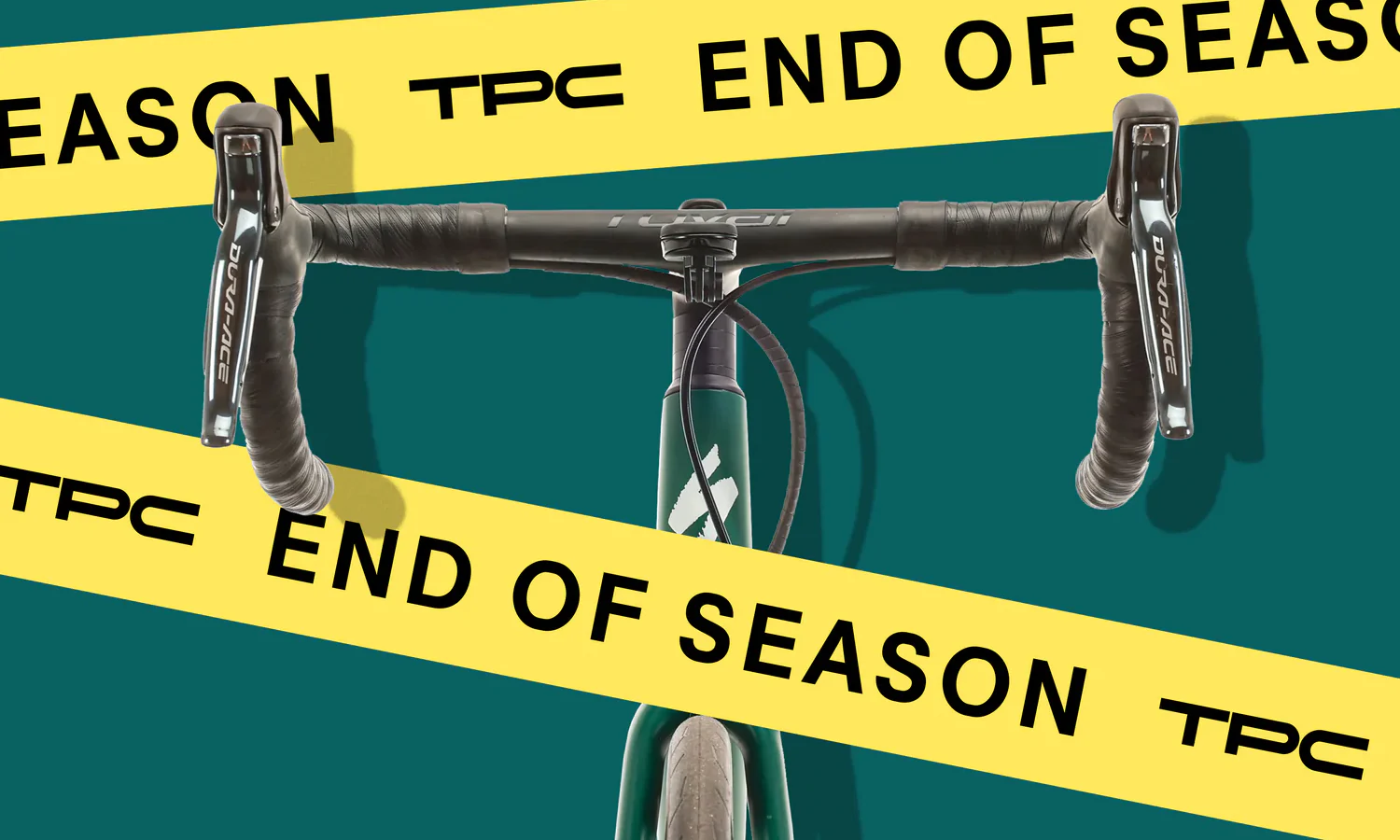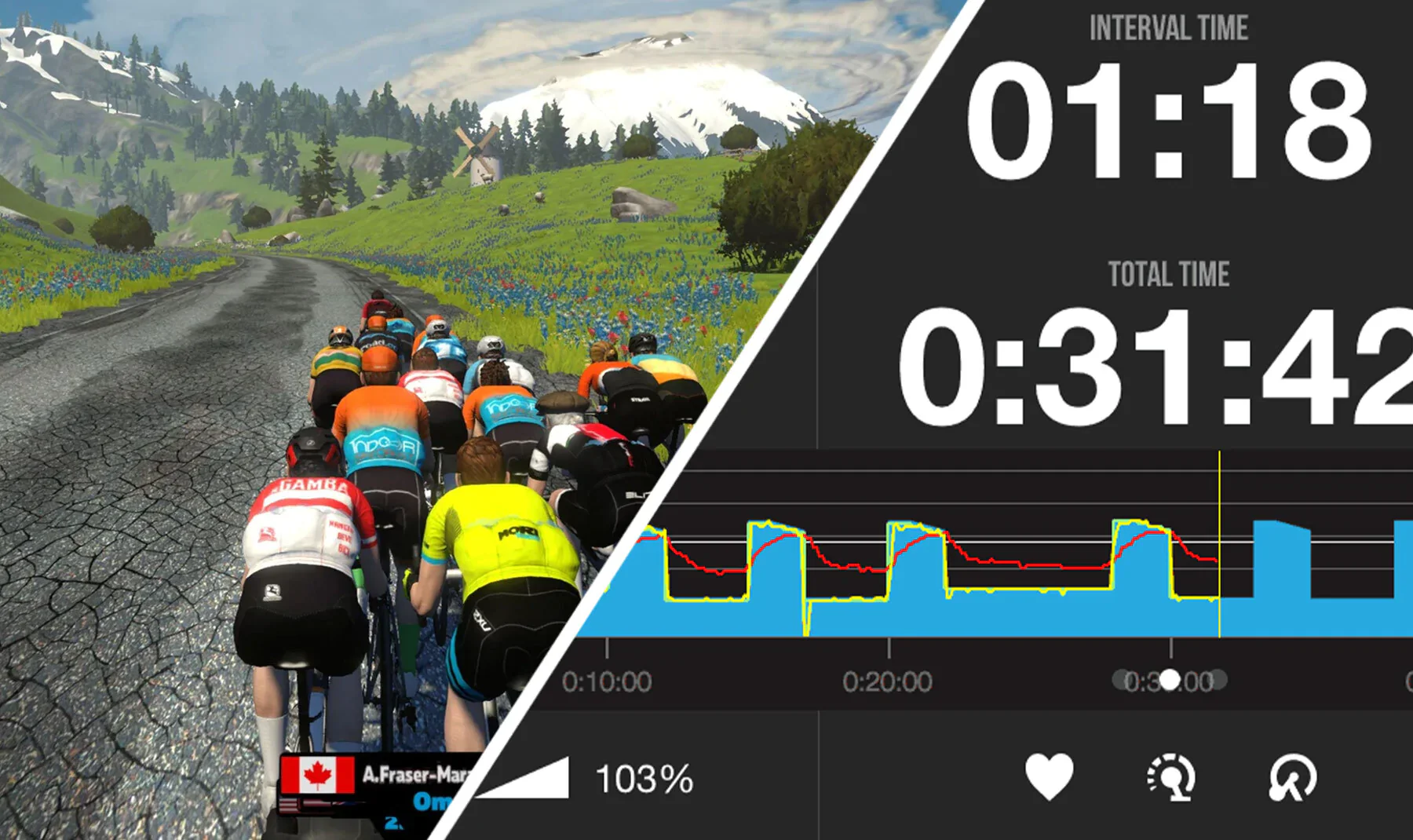Whether you’re racing across fire roads, jibbing down flow trails, or dropping into the gnarliest features at Red Bull Rampage, you want a good suspension fork on your side. Most riders are familiar with the two major players — Fox and RockShox — but if you want something a little different for your bike, there are plenty of other manufacturers making great forks. Here’s what you need to know.
Cane Creek forks
 The Cane Creek Helm Air on a Knolly Fugitive.
The Cane Creek Helm Air on a Knolly Fugitive.
Made in the USA and more tunable than a grand piano.
Cane Creek is better known for its headsets, but in 2005, it revolutionized suspension tuning with its Double Barrel shocks. It used twin-tube technology with four-way adjustability to give riders more freedom to tune shock performance. In 2017, Cane Creek brought this adjustability to the fork game with its Helm forks. These are built by hand in its facility in North Carolina.
|
Fork |
Travel |
Stanchion |
Weight |
Price |
Use |
|
Helm MkII Air |
130-160mm |
35mm |
2,080g |
$1,049.99 |
Trail / Enduro |
|
Helm MkII Coil |
130-160mm |
35mm |
2,340g |
$1,049.99 |
Trail / Enduro |
The Helm MKII is the latest revision of Cane Creek’s Helm fork. It includes a redesigned damper featuring a new compression and mid-valve circuit for increased support and control while a new seals and damper oil reduce friction and provide a more supple ride-feel. Like the previous version of the Helm, it comes in air- and coil-sprung versions with adjustable high- and low-speed compression and adjustable travel.
DVO forks
The DVO Diamond D1 in factory green on a Foes Ridgeback 29.
The spawn of Marzocchi — not the new Marzocchi, the original freeride fork maker.
DVO founder Bryson Martin was also the founder of Marzocchi USA and the man behind the legendary Bomber forks that spearheaded the freeride movement of the late ‘90s and early ‘00s. After leaving Marzocchi in 2012, Martin launched DVO, which is short for “Developed Suspension.” DVO forks are instantly recognizable thanks to their signature green colors.
|
Fork |
Travel |
Stanchion |
Weight |
Price |
Use |
|
Onyx SC D1 |
160-180mm |
36mm |
2,250g |
$785-$1,074 |
Enduro |
|
Diamond D1 |
140-170mm |
35mm |
2,100g |
$749-$1,024 |
Trail / Enduro |
|
Diamond D2 |
140-170mm |
35mm |
2,150g |
$699-$724 |
Trail / Enduro |
|
Sapphire D1 |
120-150mm |
34mm |
1,900g |
$675-$924 |
XC / Trail |
 I (foreground) enjoyed using the DVO Diamond D1 on my personal bike.
I (foreground) enjoyed using the DVO Diamond D1 on my personal bike.
DVO forks use the D1 damper with adjustable high- and low-speed compression damping and an externally adjustable OTT (off the top) function. OTT allows riders to fine-tune the initial stroke without affecting the mid or end stroke of the fork. This means the fork can be extremely supple over small bumps, while still having enough support to prevent bottom-outs during hard impacts. The D2 damper simplifies things and decreases cost with low-speed compression adjustment and an internal OTT adjustment.
Notable riders: Remy Metailler, Rae Morrison, Brian Lopes, Reece Wallace
Lauf forks
 The Lauf Racer (later replaced by the TR Boost) on a Niner Air 9.
The Lauf Racer (later replaced by the TR Boost) on a Niner Air 9.
Looks weird, but ultra-light and ultra-reliable. Plus, Iceland.
The striking carbon fiber Lauf fork comes from Iceland and rides on S2 Springs made of military spec glass fiber. Due to fewer moving parts, Lauf forks are lightweight, durable, and require zero maintenance. They’ve become popular among riders looking for the lightest, simplest, and most reliable fork possible.
|
Fork |
Travel |
Stanchion |
Weight |
Price |
Use |
|
TR Boost |
60mm |
N/A |
1,000g |
$990 |
XC |
|
Carbonara |
60mm |
N/A |
1,100g |
$990 |
Fat bikes |
Lauf forks provide only 60mm of travel, which Lauf considers the sweet spot for its damper-less springs. Nothing else here matches the simplicity and weight of Lauf forks, making them an appealing option for XC racing and bikepacking. They do a great job of smoothing out bumps and chatter but will get overwhelmed with bigger impacts. For gravity mountain biking, traditional telescopic forks are still preferred.
Manitou forks
 The Manitou Machete on a Specialized Fuse Comp 6Fattie.
The Manitou Machete on a Specialized Fuse Comp 6Fattie.
The OG fork brand, just ask Johnny T.
Manitou created the first production mountain bike suspension fork (though RockShox may argue it was the RS-1). The original Manitou fork was built in 1990 by Doug Bradbury. Legend has it that John Tomac requested one immediately, and soon every racer wanted one. Today, Manitou forks are recognizable thanks to the patented reversed fork arch.
|
Fork |
Travel |
Stanchion |
Weight |
Price |
Use |
|
Mezzer Pro |
140-180mm |
37mm |
2,032g |
$1,099.99 |
Enduro |
|
Mezzer Expert |
140-180mm |
37mm |
2,062g |
$849.99 |
Enduro |
|
Mattoc Pro |
140-170mm (27.5) / 100-140mm (29) |
34mm |
2,033g |
$899.99 |
Trail |
|
Mattoc Comp |
140-170mm (27.5) / 100-140mm (29) |
34mm |
2,222g |
$579.99 |
Trail |
|
R7 Pro |
80-120mm |
32mm |
1,648g |
$979.99 |
XC / Trail |
|
R7 Expert |
80-120mm |
32mm |
1,812g |
$819.99 |
XC / Trail |
|
Mastodon Pro |
100-150mm |
34mm |
2,152g |
$949.99 |
Fat bike |
|
Mastodon Comp |
100-150mm |
34mm |
2,354g |
$724.99 |
Fat bike |
|
Machete |
100-120mm |
32mm |
1,885g |
$464.99 |
XC / Trail |
Most Manitou forks are separated into Comp, Expert, and Pro models. Higher-end models provide more adjustable dampers and lower weight. Manitou produces a large number of fork models, including many entry-level offerings not included here. They are great options for riders looking for performance on a budget.
Marzocchi forks
 The Marzocchi Bomber Z1 on a Banshee Titan.
The Marzocchi Bomber Z1 on a Banshee Titan.
Italian freeride flair tangos with Fox's proven internals.
Italian manufacturer Marzocchi was founded in 1949 and specialized in motorcycle shocks. In the ‘90s, the mountain bike spin-off, Marzocchi USA, became the fork manufacturer of the freeride movement with the legendary Bomber fork. After a brief disappearance, it was acquired by Fox Factory in 2015 and the latest generation of Marzocchi shocks and forks now benefit from Fox technology.
|
Fork |
Travel |
Stanchion |
Weight |
Price |
Use |
|
Bomber Z1 Coil |
150-180mm |
36mm |
2,525g |
$779 |
Enduro |
|
Bomber Z1 |
140-170mm |
36mm |
2,249g |
$729 |
Enduro |
|
Bomber Z2 |
100-150mm |
34mm |
2,030g |
$519 |
Trail |
 Thomas Genon riding Marzocchi at the 2021 Red Bull Rampage | Photo by: Bartek Wolinski / Red Bull Content Pool.
Thomas Genon riding Marzocchi at the 2021 Red Bull Rampage | Photo by: Bartek Wolinski / Red Bull Content Pool.
The current generation of Marzocchi forks are essentially budget versions of Fox’s 36 and 34 forks. They use the two-way adjustable Grip damper found on Fox's Performance Series forks. They are affordable, reliable, and easy to set up, making them ideal for riders who shred hard and abuse their equipment. Plus they’ve got that old-school freeride mojo.
Notable Riders: Wade Simmons, Cam Zink, Tyler McCaul, Reed Boggs
MRP forks
 The MRP Ribbon Air on a REEB Sqweeb.
The MRP Ribbon Air on a REEB Sqweeb.
Small-batch forks, made in 'Murica and proven in the rough Colorado desert.
MRP stands for “Mountain Racing Products” and it builds and assembles components in small batches in Colorado. Everything is designed and prototyped in-house by a small team, then tested and perfected on the rugged trails of Colorado’s Western Slope. It is known to support its products long-term and still has spare parts for forks from 10-15 years ago
|
Fork |
Travel |
Stanchion |
Weight |
Price |
Use |
|
Ribbon Air |
120-170mm |
35mm |
1,900g |
$1,049.95 |
Trail / Enduro |
|
Ribbon Coil |
140-170mm |
35mm |
2,160g |
$1,049.95 |
Trail / Enduro |
|
Ribbon SL |
110-130mm |
35mm |
1,790g |
$989.95 |
XC / Trail |
|
Raven |
120-170mm |
35mm |
2,020g |
$849.95 |
Trail / Enduro |
|
Loop TR |
120-150mm |
32mm |
1,900g |
$869.95 |
XC / Trail |
|
Loop SL |
80-100mm |
32mm |
1,770g |
$829.95 |
XC |
 Our Warehouse Manager, Steve, loves shredding his MRP Ribbon Coil.
Our Warehouse Manager, Steve, loves shredding his MRP Ribbon Coil.
The Ribbon is MRP’s star product, winning Pinkbike’s suspension product of the year in 2017. It uses MRP’s Ramp Control, FulFill independent positive and negative chamber air-spring system, and PSST pressure relief valves in the lowers. The Raven shares the Ribbon’s chassis but has a simplified damper and air-spring system. The new Ribbon SL is a lightweight version designed to compete with the Fox 34 Step-Cast and RockShox SID Ultimate.
Öhlins
 The Öhlins RXF36 on a Specialized Enduro Coil 29.
The Öhlins RXF36 on a Specialized Enduro Coil 29.
The Swedish king of racing brings F1 and MotoGP tech to the trails.
Motorsports fans may recognize Öhlins suspension from its presence and success in Formula 1, MotoGP, and other top-level racing series. The Swedish brand branched out into mountain bike suspension in 2015 and quickly found success with three downhill world championships and two World Cup overall wins under Loic Bruni of Team Specialized Gravity.
|
Fork |
Travel |
Stanchion |
Weight |
Price |
Use |
|
RFX38 M.2 Air |
160-180mm |
38mm |
2,320g |
$1,250 |
Enduro |
|
RFX36 M.2 Air |
150-180mm |
36mm |
2,159g |
$1,250 |
Trail / Enduro |
|
RFX36 M.2 Coil |
120-170mm |
36mm |
2,300g |
$1,250 |
Trail / Enduro |
|
RFX34 M.2 |
120-160mm |
34mm |
2,050g |
$1,250 |
Trail |
 Trials and YouTube star Fabio Wibmer rides Öhlins.
Trials and YouTube star Fabio Wibmer rides Öhlins.
Öhlins forks are premium offerings, and that is reflected in the prices. All its forks use twin tube TTX damper technology which provides high- and low-speed compression adjustment and has been thoroughly proven on Öhlins’ motorsports products. Öhlins is very selective with sponsorship, and in the mountain bike world, it backs some of the best current riders and teams.
Notable riders: Loic Bruni, Finn Iles, Fabio Wibmer, Matt Jones, and more.
Honorable mentions
 World Cup winner and Olympic gold medalist, Tom Pidcock, rides SR Suntour forks. | Photo by: Bartek Wolinski / Red Bull Content Pool.
World Cup winner and Olympic gold medalist, Tom Pidcock, rides SR Suntour forks. | Photo by: Bartek Wolinski / Red Bull Content Pool.
The above manufacturers are the main fork brands (beyond Fox and RockShox) that riders will encounter in the U.S. Asian brands like SR Suntour, X-Fusion, and RST are left off the list. We simply don’t see many on new or used bikes. There are also a few European brands like DT Swiss, Formula, BOS, and Intend which are rare, but might find their way to our shores.
SR Suntour is worth an extra mention because it was a major component manufacturer competing with Campagnolo and Shimano during the ‘60s and ‘70s. It reemerged in 2011 as a suspension manufacturer, building forks for brands such as Marzocchi and DVO. Its own forks have had success in top-level racing, winning world championships and World Cups under Pauline Ferrand-Prevot, and recently, Olympic Gold under Tom Pidcock. It sponsors some big names like Brett Tippie, Carson Storch, and more.
 Henrique Avancini racing the Cannondale Lefty Ocho fork. | Photo by: Bartek Wolinski / Red Bull Content Pool.
Henrique Avancini racing the Cannondale Lefty Ocho fork. | Photo by: Bartek Wolinski / Red Bull Content Pool.
Then there's Cannondale's famous single-sided Lefty fork. The Lefty has been around in various forms for over 20 years. In its current form, the Lefty Ocho, it's a solid XC and trail fork. To learn more check out our in-depth article on the Cannondale Lefty.
Finally, I can't finish this list without mentioning the short-lived Trust Message and Trust Shout linkage forks. They were both innovative and divisive. To learn more about Trust forks, check out our article on the Trust Message and the history of linkage forks.
Final thoughts
If you’re on a budget and don’t need a lot of tuning options, Marzocchi and Manitou are the top picks on this list. Most riders won’t be able to discern any difference in performance compared to more expensive forks.
If you’re a tinkerer who understands suspension tuning and cares about adjustability, Cane Creek and DVO have high-end damper technology that will allow you to dial in your fork for your riding style and terrain.
For riders big on American-made products and who want to support smaller manufacturers, Cane Creek and MRP are the home-grown favorites.
And if you simply want the best of the best, it has to be Öhlins. No other brand here matches its racing heritage and competitive success. You’ll need to pay to play though.
Finally, if you don’t feel like branching out and prefer to stick with the established names, check out our in-depth Fox vs. RockShox comparison and MTB fork guide to find out which is better for your ride.
What’s your favorite MTB fork manufacturer? And who did I forget to mention? Let me know in the comments!
















